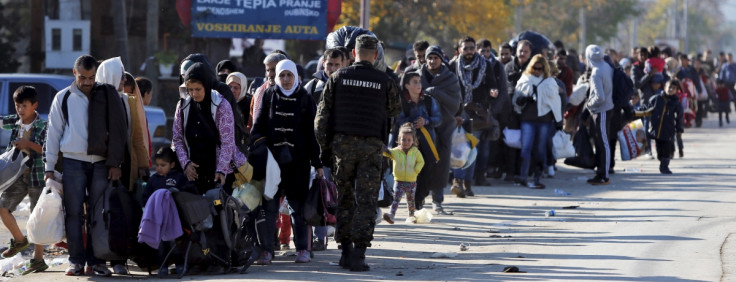Germany proposes stopping aid to countries that do not accept rejected asylum seekers
Germany is also considering new laws to deal with asylum seekers considered dangerous.
German Vice Chancellor Sigmar Gabriel and Interior Minister Thomas de Maiziere have put forward a proposal to stop development aid to countries if they decide not to accept rejected asylum seekers. The government is looking to change its laws regarding acceptance of refugees and migrants following the Berlin terror attack by Tunisian migrant Anis Amri in which 12 people were killed.
"Those who do not cooperate sufficiently cannot hope to benefit from our development aid," Gabriel said in an interview with Der Spiegel magazine.
In October 2016, the European Union 'strong-armed' Afghanistan into a deal to take back its refugees who were rejected by member nations. According to a leaked memo, the EU threatened to stop aid to the Afghan government if they did not cooperate. The Joint Way Forward agreement allowed for the deportation of a maximum of 50 non-voluntary deportees per charter in the first six months of signing, but does not stipulate a maximum number of flights that can be chartered to Kabul for the same.
If Gabriel's proposal is taken forward, Germany could force other countries to take back their citizens as well.

His views were echoed by de Maiziere who said that he "fully supports this idea" and also intends to propose plans to keep rejected asylum seekers, especially those considered dangerous, confined until they can be deported. He will be meeting Justice Minister Heiko Maas to discuss the issue.
"I will make very concrete proposals to expand the possibility of placing in detention people classified as dangerous before their expulsion," said Maas, referring in particular to those considered Islamists.
De Maiziere has already drafted a law that would allow this type of detention but has not been able to move it forward for a while. The Berlin attack on 19 December, however, may give new leverage to it now.
Following the attack, the Christian Democrat party member also voiced criticism of the Social Democrats (SPD) for refusing to agree to stronger security measures. He told German weekly Bild am Sonntag that "we could be much farther ahead, especially regarding the concrete improvement of deportation possibilities" but he was not sure if "everyone in the SPD is ready to take tough measures".
© Copyright IBTimes 2025. All rights reserved.






















